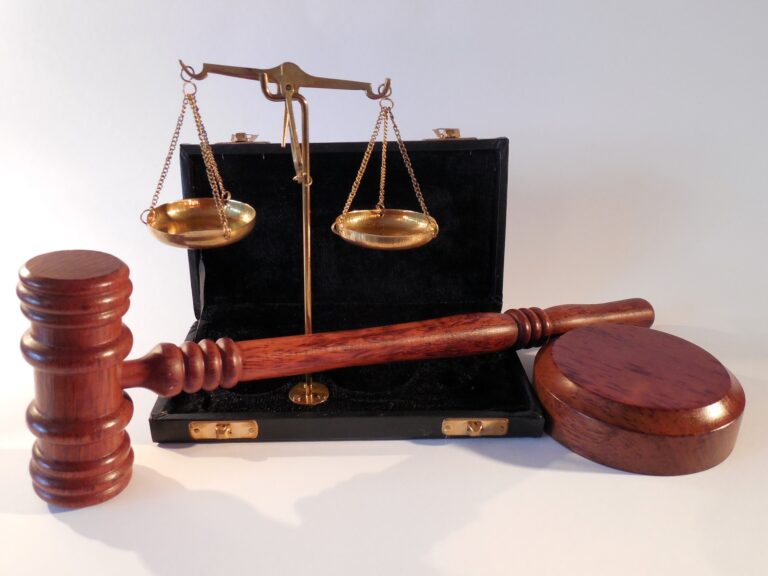Choosing the Right Executor for Your Will
Writing a will is one of the most important steps you can take to ensure your loved ones are cared for and your assets are handled the way you want after your death. But beyond listing who gets what, there’s a critical decision that often gets overlooked: choosing the right executor for your will.
This person will be responsible for carrying out your wishes, managing your estate, and dealing with legal and financial matters on your behalf. It’s a big responsibility—one that requires thought, care, and trust.
In this article, we’ll walk you through what an executor does, why choosing the right one matters, and how this single decision can protect your legacy long after you’re gone.
What Is a Will?
Before diving into the role of an executor, let’s start with the basics. A will is a legal document that sets out your wishes for what should happen to your assets, dependents, and estate when you pass away. It gives you control over:
- Who receives your property, money, and possessions
- Who will care for your minor children
- Who will handle your affairs (your executor)
- Any specific gifts or donations you’d like to make
- Your funeral or burial preferences, if desired
A will ensures that your voice is heard and respected, even after you’re gone.
See more: Fresh Linley Point Flowers Delivered Straight to You
Why a Will Is Important—No Matter Your Age
Many people think writing a will is something to do later in life. But the truth is, if you’re over 18 and have any assets, debts, or dependents, you should have a will.
Whether you’re a young professional with a car and a bank account, a parent with children, or someone managing a growing business—having a legal will protects everything you’ve worked for.
Let’s take Sophie as an example. She was 29, owned a small graphic design studio, and had no children. When she unexpectedly passed away, her family didn’t know how to access her business accounts or who she would’ve trusted to handle her estate. With no executor named in a will, her parents had to go through lengthy legal processes just to manage basic decisions.
That situation could have been avoided with a properly written will—and a reliable executor.
What Happens If You Die Without a Will?
Dying without a will is known as intestacy. In this case, state laws decide how your estate is distributed, who takes care of your children (if applicable), and who manages your affairs. It’s a process filled with uncertainty, paperwork, and court involvement.
Here’s what could go wrong:
- Your spouse or partner might not receive everything you’d want them to
- Your children may not be provided for in the way you intended
- The court will appoint an administrator—not necessarily someone you would have trusted
- Family disputes can arise, straining relationships
- Your estate may take years to settle
A clear, updated will—along with a thoughtful choice of executor—helps avoid all of this.
The Benefits of Having a Will
Having a legal will in place isn’t just about asset division. It’s about protecting your loved ones, your legacy, and your peace of mind.
✅ 1. Asset Protection
You decide who inherits what—money, property, investments, family heirlooms, even digital assets.
✅ 2. Reducing Family Conflict
When your wishes are clearly written and legally binding, it helps reduce confusion and arguments among family members.
✅ 3. Children’s Guardianship
If you have children under 18, your will allows you to nominate a trusted guardian.
✅ 4. Support for Causes You Care About
You can leave gifts or donations to charities or organizations that matter to you.
✅ 5. Appointing a Trusted Executor
And finally—perhaps most importantly—you get to choose who ensures all of this happens exactly as you intended.
What Is an Executor and What Do They Do?
The executor of a will is the person legally responsible for managing your estate after you pass away. Their role includes:
- Locating your will and applying for probate (if necessary)
- Collecting and valuing your assets
- Paying off any debts and taxes
- Distributing your assets according to your wishes
- Managing any disputes or legal issues that arise
- Maintaining communication with your beneficiaries
It’s a role that can be time-consuming and emotionally demanding—especially during a period of grief.
That’s why choosing the right executor is crucial.

Who Can Be an Executor in Australia?
In Australia, your executor must be over 18 years old. They can be:
- A family member or close friend
- Your spouse or adult child
- A professional, such as a solicitor or accountant
- A trustee company
You can also appoint more than one executor (joint executors), especially if you want a balance of personal and professional involvement.
Qualities to Look for in an Executor
Choosing someone just because they’re family isn’t always the best option. Instead, look for someone who is:
✔️ Trustworthy
They will have access to sensitive documents, bank accounts, and private family matters. You need someone who will act in everyone’s best interest.
✔️ Organised and Detail-Oriented
There’s a lot of paperwork and legal steps involved. A good executor should be comfortable with timelines, documentation, and multitasking.
✔️ Calm Under Pressure
Grief can stir up emotions and disputes. Your executor should be someone who can remain neutral and focused.
✔️ Fair and Communicative
They should be able to explain things clearly to beneficiaries and keep everyone informed throughout the process.
✔️ Available and Willing
Being an executor is a big commitment. Make sure the person you choose is willing to take on the responsibility—and able to do so when the time comes.
Real-Life Example: The Right and Wrong Choice
James, a father of two, named his older brother Paul as executor. Paul was dependable but lived overseas and had a demanding job. When James passed away, Paul struggled to manage the process from afar, causing delays and confusion among the family.
In contrast, Anna chose her best friend Melissa—a local schoolteacher known for her organisation and compassion. Melissa worked with a solicitor to settle Anna’s estate efficiently and kept the family informed every step of the way.
Both Paul and Melissa cared deeply—but only one was realistically able to fulfill the role. Your executor doesn’t need to be perfect. They just need to be capable, willing, and available.
Can an Executor Be a Beneficiary?
Yes, in Australia, your executor can also be a beneficiary—and often is. For example, it’s common for a surviving spouse or adult child to act as executor.
However, if you think conflicts of interest might arise (especially in blended families), consider naming an impartial third party, like a solicitor or trustee company.
Should You Update Your Executor?
Just like other parts of your will, your executor choice should be reviewed and updated regularly. Here are common reasons to reconsider:
- The person has moved away or become uncontactable
- They are no longer willing or able to serve
- They’ve passed away
- Your relationship has changed
- You’ve remarried or had children
- Your estate has grown more complex
When you update your will (recommended every 3–5 years), make sure your executor still makes sense for your current situation.
How to Appoint or Change an Executor
You must name your executor in your will. If you want to update this after the will is written, you’ll need to:
- Write a new will (preferred)
- Or create a codicil, which is a legally binding document that amends your existing will
Always seek legal advice to ensure your changes are valid and your estate is protected.
Final Thoughts: Protect Your Legacy with the Right Choice
Choosing an executor might not seem like the most emotional or meaningful part of writing a will—but it’s one of the most powerful decisions you can make.
Your executor is the person who carries your legacy forward. They’ll ensure your loved ones are cared for, your debts are managed, and your final wishes are respected. A good executor makes a difficult time just a little bit easier for everyone involved.
✍️ Take Action Today
If you’ve already written a will, review who you’ve named as executor. Ask yourself:
- Are they still the right person for the job?
- Are they willing and able to take on the role?
- Have your life circumstances changed?
If you haven’t written a will yet—don’t wait. Start now. Choose someone you trust, talk to them about it, and write your wishes down legally and clearly.
Because when it comes to the end of life, you only get one chance to make it easier for the people you love.
Protect your legacy. Write or update your will. And choose your executor with care.







